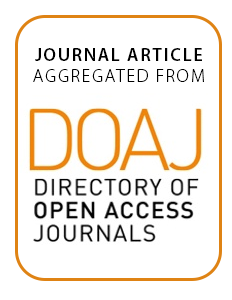Focal point
Location
The German Chapter of the International Association of Landscape Ecology (IALE) connects landscape researchers, planners, and other interested persons to support a scientifically and planning-related sound development of human-environment relations. IALE-D supports scientific principles of landscape science and sustainable landscape management, their application in practice, as well as the communication of landscape ecological questions.
The International Association for Landscape Ecology was founded in 1982 in the Slovakian town Piestany, to promote transdisciplinary research and exchange of experience in the field of landscape ecology as a scientific basis for landscape planning and environmental management. It strives for close contact between natural and social sciences, as well as for a connection between science and practice. On this basis, theories, models, and empirical data can be combined and merged so that a better understanding of landscape and sustainable landscape management becomes possible.
The foundation of our chapter “IALE-D“ took place at May 5, 1999 in Basel (Switzerland). Like other regional chapters, IALE-D builds on the expertise of its members, their ideas, and new ways of cooperation.
Members:
Resources
Displaying 36 - 40 of 53One Century of Treeline Change and Stability - Experiences from the Swedish Scandes
This paper elaborates and visualizes processes recorded in a recent regional and multi-site study of elevational
treeline dynamics during the period 1915 to 2007 in the Swedish Scandes. The purpose is to give a concrete face of
the landscape transformation which is associated with the recorded treeline shifts. The main focus is on stand-level
structure of past and present treelines and the advance zones, where climate change elicited responses by Betula pubescens
Do Flying Beetles Respond to Human-Dominated Landscapes as Complex Mosaics or Binary Patterns?
Understanding and measuring functional connectivity for animals with habitats that have been fragmented by human
activity requires that the biology and movement of the species be considered. We used least cost paths in GIS
to test hypotheses regarding how different species of longhorned beetles likely connect habitats with dispersal.
We predicted that there would be differences in the functional connectivity of landscapes depending on species
larval niche breadth, adult feeding habits, and the potential for use of non-forest habitats. For the species with very
Ecosystem Services at the Landscape Scale: the Need for Integrative Approaches
During the symposium “Ecosystem Services at the Landscape Scale” from the EU-IALE conference 2009, several
challenges for future research on approaches to use the concept of ecosystem services at the landscape scale were
identified, focussing on the need for integration. Three main research directions were discussed, (i) the definition
of the potentials and limitations of the ecosystem service approach for landscape analysis, (ii) the identification of
Landscapes‘ Capacities to Provide Ecosystem Services – a Concept for Land-Cover Based Assessments
Landscapes differ in their capacities to provide ecosystem goods and services, which are the benefits humans obtain
from nature. Structures and functions of ecosystems needed to sustain the provision of ecosystem services are altered
by various human activities. In this paper, a concept for the assessment of multiple ecosystem services is proposed
as a basis for discussion and further development of a respective evaluation instrument. Using quantitative and
Transdisciplinary Challenges for Sustainable Management of Mediterranean Landscapes in the Global Information Society
The present chaotic transformation from the industrial to the global information society is accelerating the ecological,
social and economic unsustainability. The rapidly growing unsustainable, fossil energy powered urbanindustrial
technosphere and their detrimental impacts on nature and human well-being are threatening the solar
energy powered natural and seminatural biosphere landscapes and their vital ecosystem services. A sustainability
revolution is therefore urgently needed, requiring a shift from the „fossil age“ to the „solar age“ of a new world


